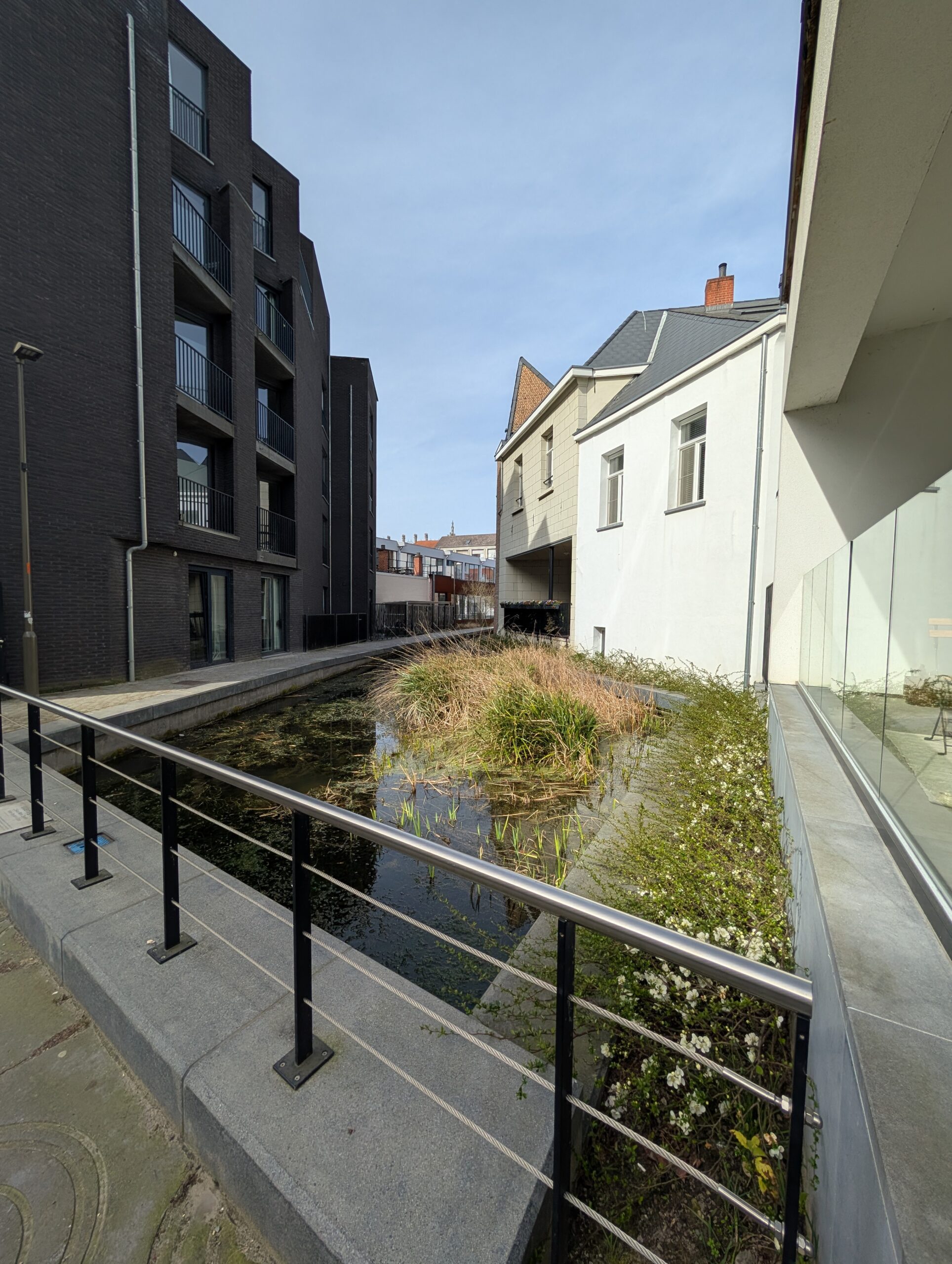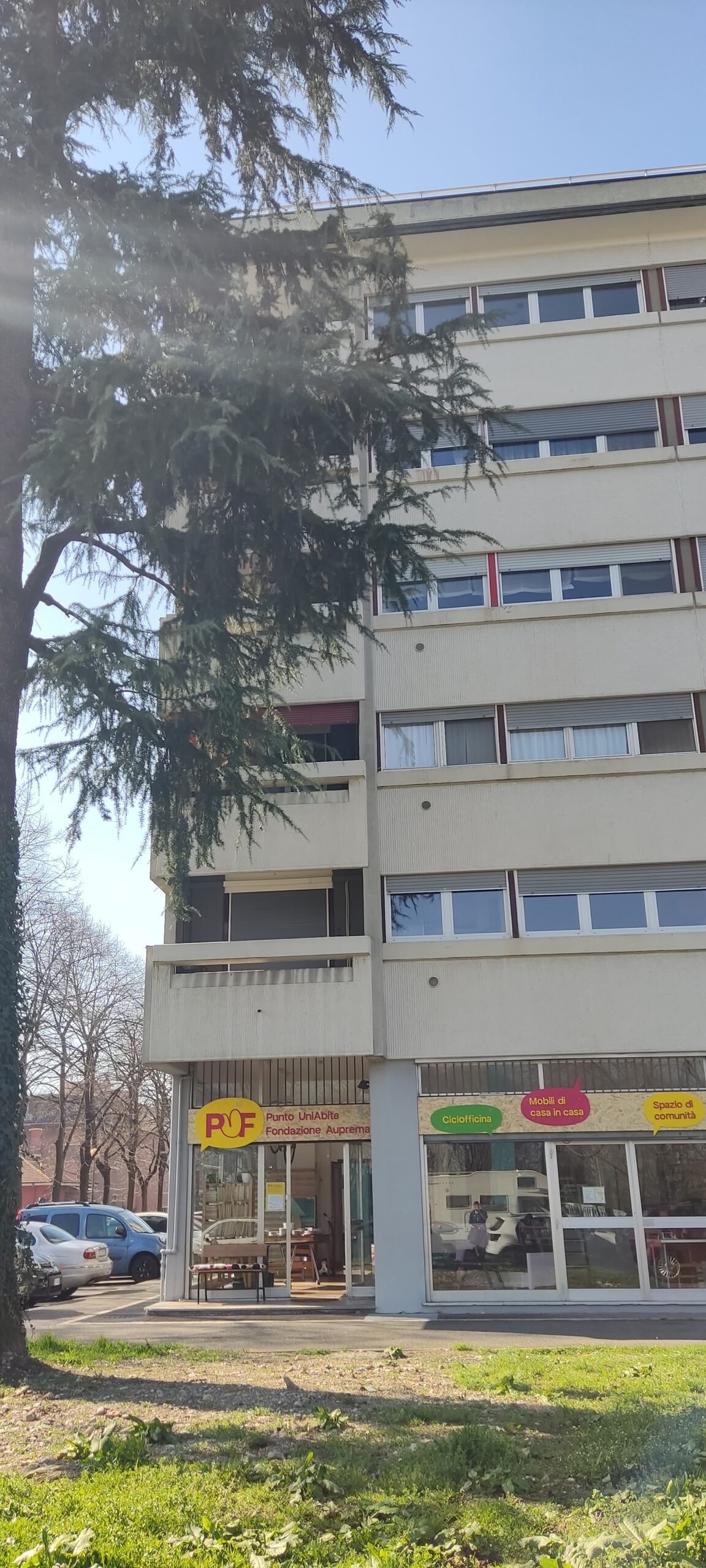27.03.2025
Bringing Co-creation Methodology to Life: Visits to SocialNRG Pilot Communities in Belgium and Italy
Our anthropologists, Domen Bančič and Sara Arko, recently visited Cinisello Balsamo, Italy and Mechelen, Belgium – but why?
One of the key roles of the Department for Applied Social Sciences at IRI UL is to develop and customise qualitative research and co-creation methodologies, and support their implementation in the interdisciplinary (often transdisciplinary) projects we’re involved in. That’s also our task in the SocialNRG project.
SocialNRG: A participatory approach to tackling energy poverty
SocialNRG (EU LIFE CET) aims to create long-term renewable energy communities (RECs) for around 460 households in three pilot locations: Slovenia, Italy, and Belgium. These pilot initiatives focus on energy-vulnerable residents living in social, public, or affordable housing.
While the end goal is to co-develop scalable, transferable blueprints, the approach is intentionally participatory. SocialNRG doesn’t seek to design RECs for vulnerable households – it aims to imagine and co-create them with residents, putting lived experience and local knowledge at the centre of the process.
From research to co-creation
IRI UL’s first step was to draft a customisable research methodology to guide the local pilot teams. The goals of this methodology are to assess the degree and nature of experienced energy poverty, using both indicators and lived experiences, to understand the drivers behind energy poverty in each context, and to evaluate households’ baseline understanding of RECs and their capacity to participate in such initiatives.
Based on these insights, the second phase of the methodology supports the design of three co-creation workshops in each pilot. Each workshop serves a specific general purpose: (1) Build trust, confidence, and explore future REC scenarios; (2) Co-design potential REC models and ideas; (3) Validate the proposed blueprints and pilot implementation.
Field visits: Supporting the methodology transfer
IRI UL brings extensive experience in applied qualitative research and co-design with diverse stakeholders. With that in mind, our two anthropologists travelled to Belgium and Italy to support the methodology transfer to local partners and ensure smooth implementation.
During Sara’s visit to Mechelen, she met with representatives from Woonland and Klimaan, the Belgian SocialNRG partners. They began with a joint analysis of materials gathered through local interviews and focus groups, identifying key themes and challenges that emerged. This analysis served as the baseline for designing the first co-creation workshop with vulnerable residents, planned for the coming weeks. Woonland, a social housing provider, has been retrofitting homes in the 1970s-built Kriekenijvelden neighbourhood. As part of SocialNRG and in partnership with Klimaan, a local organisation specialising in renewable energy, they are exploring the feasibility of a district heating network, which could enable a shift from gas to geothermal energy. The co-creation workshops will play a central role in understanding residents’ expectations and motivations, and in shaping the vision of a community energy model that works for them.
During Domen’s visit to Cinisello Balsamo, a municipality within the Milan metropolitan area, he met with partners from Enostra and Legacoop Abitanti to visit the Italian pilot site managed by UniAbita, one of Italy’s largest housing cooperatives existing since 1903. UniAbita is investing in solar energy infrastructure, including rooftop photovoltaic systems, to help reduce residents’ energy bills and give them more control over their energy use. During the visit to the pilot site, the project representatives learned that vulnerable households are already used to participate in the well-established cooperative decision-making protocols, which gives the Italian pilot an advantage in comparison with the Slovenian and Belgian pilots. Their challenge, therefore, is not as much in fostering community engagement as to integrate the planned investment within the existing cooperative systems, or otherwise, to meaningful support community’s mission and sustain its long-term existence.
What comes next?
These site visits mark an important milestone in SocialNRG’s participatory process. As the first round of co-creation workshops rolls out, we’ll continue to document the process and gather insights on how to co-develop RECs that are realistic, inclusive, and grounded in people’s needs.
Stay tuned for updates!


